
Audio By Carbonatix
The concept of two players being former teammates at club level is certainly not new to footballers or to fans of the game, with players switching sides all the time.
Far less common, though, is it to see two players who once joined forces for the same national team come up against each other later along the line in international football. The norm, as it should be, is that once you have played together for the same national team, you are almost certain to continue doing so till retirement ends that comradeship.
When Niger took on Ghana late Monday afternoon in a 2025 Africa Cup of Nations (AFCON) qualifier in Berkane, Morocco, however, there occurred that rarity of two one-time international teammates finding themselves on opposite sides: Najeeb Yakubu (of Niger) versus Mohammed Kudus (of Ghana).
Seven years ago, both were budding youngsters turning out for the land of their birth, Ghana, at the FIFA U-17 World Cup in India — Yakubu, a right-back bombing up and down the flank, Kudus operating in midfield — fighting for the same cause, united in purpose, and with interests aligned.
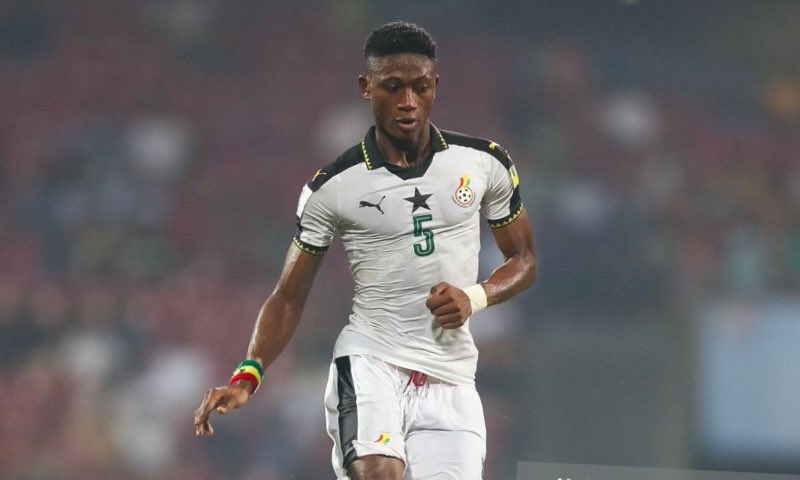
But that was in 2017, and since then, the pair have experienced contrasting fortunes.
Kudus’ story has unfolded before our very eyes, as he has kicked on from those early days to blossom into one of the most skilful players in world football and a talismanic figure for the senior Ghana team. Yakubu's own journey, however, isn't quite as well-known, but has been no less remarkable.
The 2021/2022 season marked his annus mirabilis, during which he impressed for Ukrainian top-flight side Vorskla Poltava. Those performances did not go unnoticed, and C.K Akonnor, in charge of the Black Stars at the time, reportedly had him pencilled in to face Sudan in a 2021 AFCON qualifier, but Yakubu’s name never made it to the final roster.
Unperturbed, the youngster expressed his willingness to wait for his chance.
“Every young player’s dream is to play for the Black Stars and, with hard work, I know my time will come.” Yakubu said.
For all his optimism, though, what Yakubu could not have anticipated was that, while one can always work hard at achieving their dreams, there are just some things they simply cannot predict or control — such as Russia’s sudden invasion of Ukraine in February 2022.
In an instant, Yakubu’s life changed.
While the dream of playing for the Black Stars still burned brightly, the objective of fulfilling it was now very much secondary to the more pressing need to emerge unscathed from the embattled country in which he lived and worked.
Yakubu did find his way out safely, eventually, but the war had disrupted a burgeoning career, and by late 2022, he was on loan at struggling Finnish side Ilves (more on that spell later). On the international front, however, a ray of hope came his way, when a West African nation asked if he'd represent them.
It wasn't, as he had hoped, his homeland Ghana, but Niger — a far less illustrious footballing country, but one which presented genuine opportunity. Yakubu obliged and jumped at the prospect, with his debut, a 3-0 friendly loss to Egypt, following in September 2022.
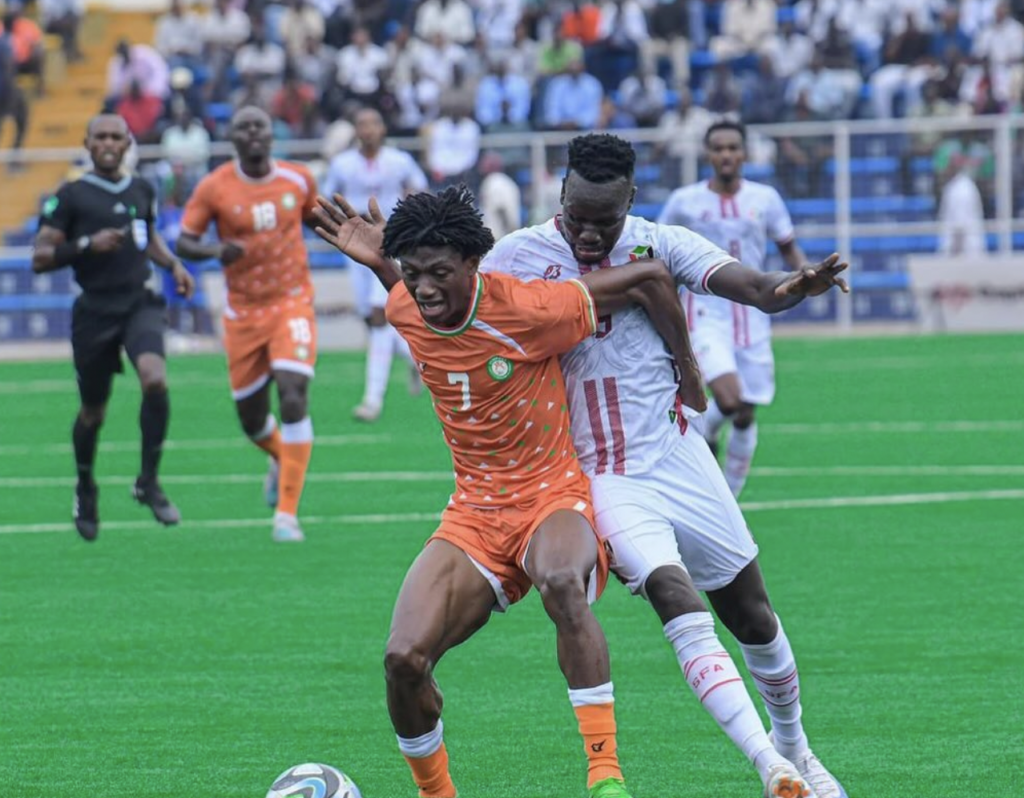
On the surface, Yakubu’s switch to Niger might have seemed strange, seemingly nothing more than a fall-back option after being overlooked by his country of birth. But a deeper analysis of the Niger national team reveals that cases like Yakubu's are no accident, but a result of a systematic plan, hatched around 2006.
You see, Niger hardly registers as a footballing powerhouse and has a much smaller pool of elite talent to draw from than some of its neighbours. The country's football governing body, however, reasoned that disadvantage could be turned into a benefit. If those endowed nations produced more players than they needed, what stopped the Menas from reaping the surplus?
Ghana, especially, has been a productive field for Niger’s gleaning.
When the country finally made it to an edition of the AFCON in 2012, some 42 years after their maiden attempt to do so, one of the stalwarts of that campaign was Kofi Dankwa, a defender born and raised in Ghana. Dankwa, who consented to playing for the Menas in 2008, was also integral at the next AFCON a year later, when Niger made a second and last appearance at the event.
Dankwa went on to rack up an impressive 67 appearances in a 10-year spell, the second-most in the history of the Nigerien national team. Though a centre-back by trade, Dankwa’s four goals for Niger ranks him joint-seventh on the team's all-time top-scorers list.
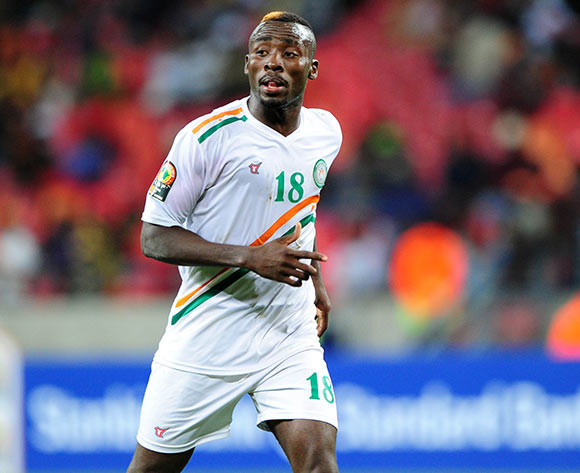
The success of the Dankwa experiment armed the Nigerien football authorities with a convincing sales pitch, with which they could now approach other Ghanaian nationals seeking an alternative pathway to international football away from the very competitive race for places in the Black Stars fold.
Whatever it is that they said, it sure was enough to turn the head of attacking midfielder Emmanuel Wonkoyi.
The former West African Football Academy (WAFA) graduate debuted for Niger in 2012, and while his tally of 48 appearances has him someway below Dankwa, his six goals have seen him overtake the latter on the scoring charts.
Wonkoyi, who also played for the SC Braga B side in Portugal, is now a veteran and doesn't play so much for Niger these days. A more regular face in the team in recent times, also recruited from Ghana, is Ali Mohamed, who hopped onto the Niger-bound bandwagon not long after Wonkoyi did.
Only 19 and pretty raw at the time, Mohamed has matured into one of the most valuable players in the country's football history. That reputation was secured in 2019, when he joined Israeli side Beitar Jerusalem from rivals Maccabi Netanya for a whopping €1.7 million — the highest fee ever paid for the transfer of a Nigerien footballer.
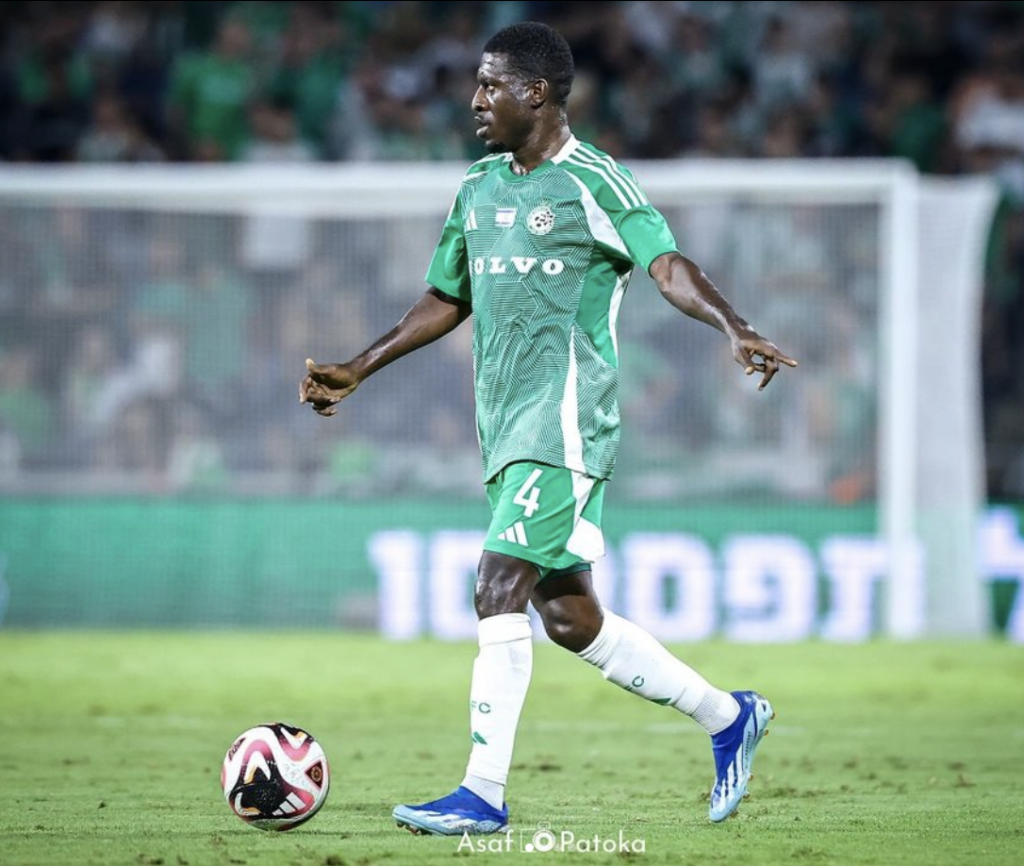
The combative midfielder still plays in Israel, for Maccabi Haifa, and continues to prove essential for Niger, as was evident during the March international window. And though he is at present not part of Badou Zaki's national team set-up — for entirely personal reasons — there remains, even in his absence, a strong Ghanaian influence on the team.
As many as three — including the aforementioned Yakubu — started for Niger against the Black Stars. Daniel Sosah started at right wing, with Yusuf Moussa contending in the middle of the park with Thomas Partey and Co.
Sosah — son of a Ghanaian mother and a Beninois father — is a relatively new addition to the team, debuting in 2021. The 25-year-old's return of six goals in 19 games thus far means he’s scoring at a rate (0.31) just behind that of the country’s leading goalscorer (0.36) — a certain Victorien Adebayor, who is himself not unfamiliar to Ghanaians, having lit up the Ghana Premier League between 2018 and 2021 on the books of Inter Allies and Legon Cities.
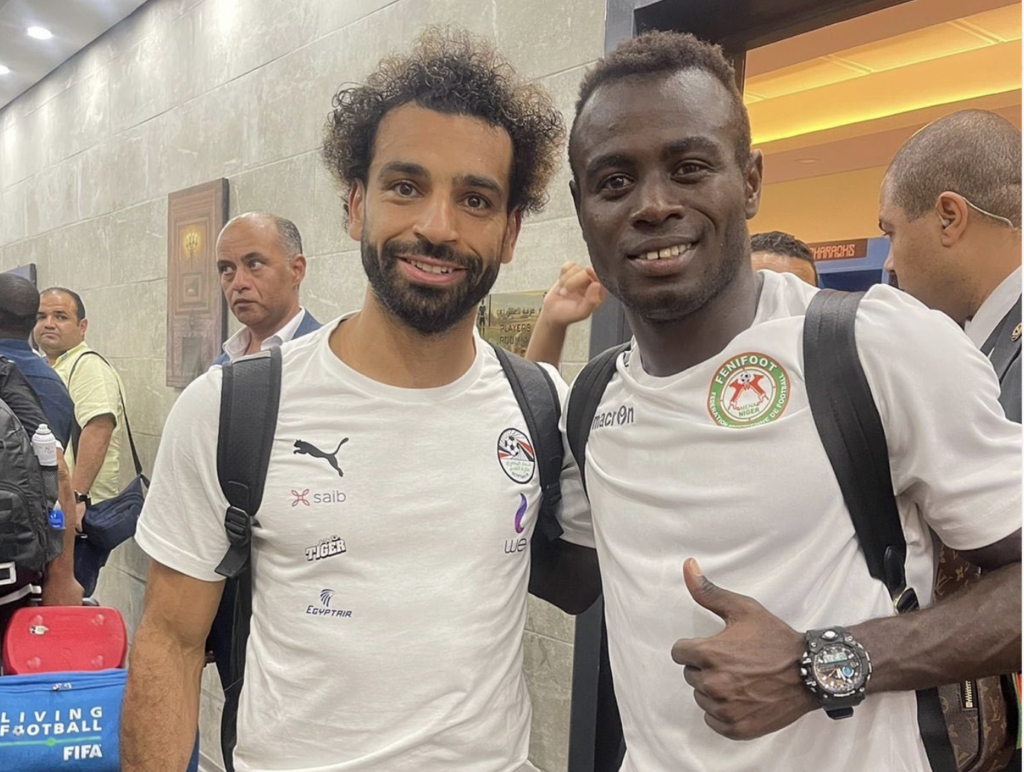
Moussa, on the other hand, is a veteran in Nigerien colours, featuring for them at every level from U-17 up to the senior team, for whom he made his bow in 2017. That occasion, as fate would have it, came at the WAFU Zone B tournament hosted by Ghana, where he starred as Niger shone and finished third.
Keen observers would have been surprised to see quite a number of Ghanaian spectators in attendance at games involving Niger excitedly and proudly waving both countries’ flags; those, mostly, were Moussa's family.
The bronze medal won at that competition remains Nigerien football's biggest accomplishment in terms of silverware, with Moussa, Dankwa and Mohamed key members of the team that brought that honour ‘home’ to Niamey.
One last thing about Moussa: he happened to play for Ilves, mentioned earlier, during that very season Yakubu was at the same club. Did the former, perhaps, have a role in getting the younger man to respond favourably to the offer extended by the Nigerien Football Federation (FENIFOOT)?
Your guess is as good as mine.
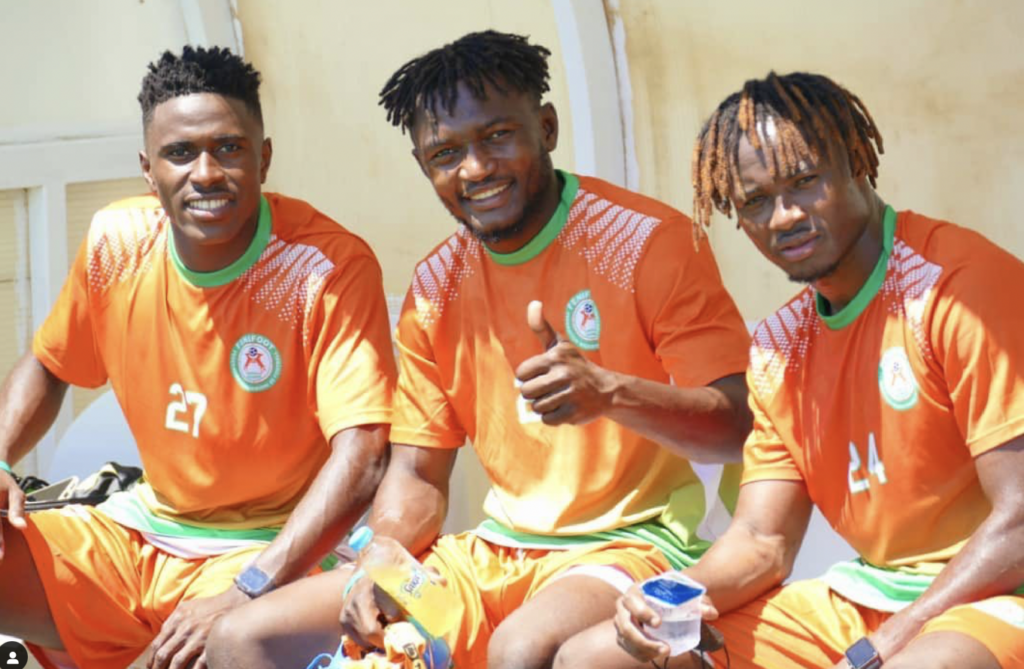
The latest member of Niger’s Ghanaian contingent, 21-year-old Salim Abubakar, came through the ranks at Ghana’s EurAfrica Academy before signing his first professional contract with Italian Serie A side Sassuolo (currently on loan at Pergolettese in the Italian third tier). With only five international caps to his name, Abubakar represents the future, and his acquisition — if you'd want to call it that — surely won't be the last.
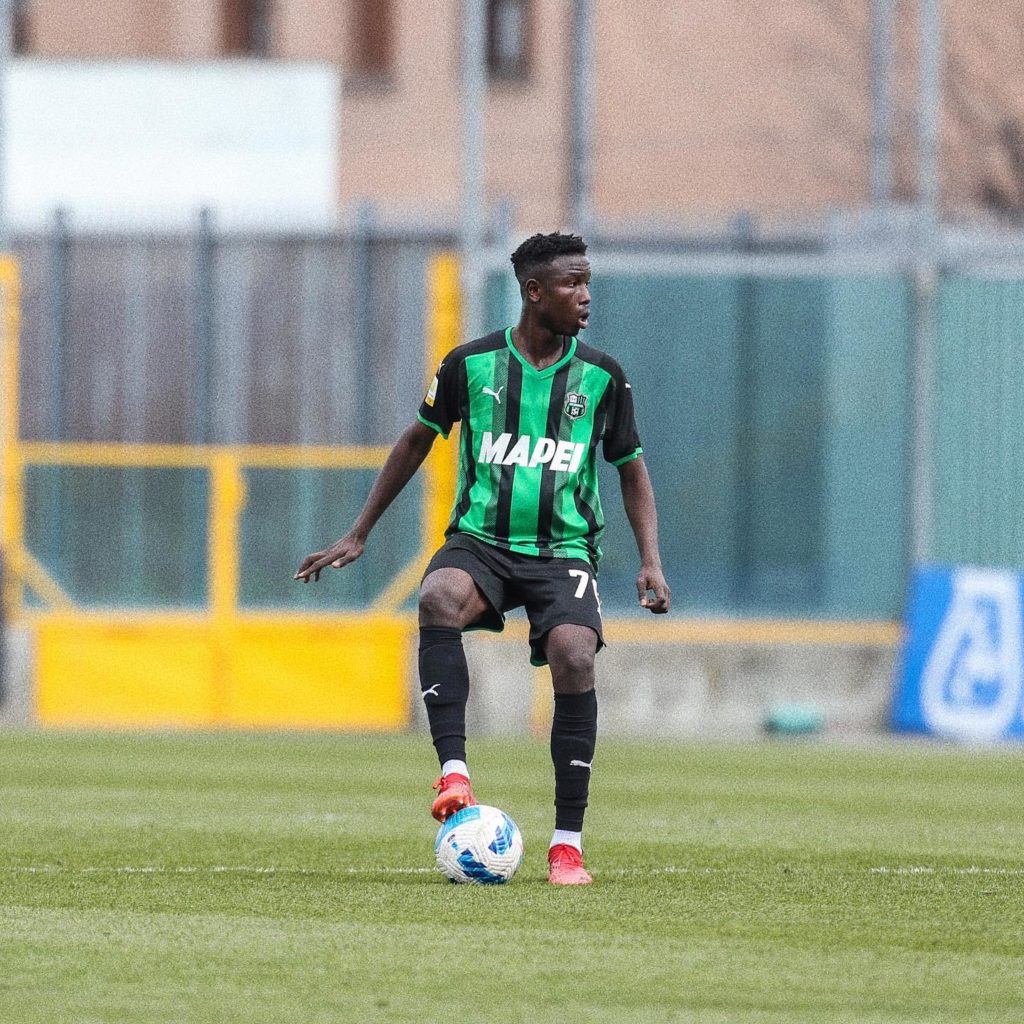
The last time Ghana faced Niger in a competitive game, prior to this week's encounter, was at the 2013 AFCON, when Dankwa was the only player of Ghanaian extraction on a team that lost 3-0. Their latest meeting ended in a stalemate, with Niger earning a vital point and giving a good account of themselves even on neutral territory.
That Niger have risen to Ghana’s level — though some might claim, with good reason, that it is the Black Stars who have regressed — feels not just like vindication of their approach to improving the country's lot, but also veritable proof that, given the opportunity under the right circumstances, one nation's outcasts can brighten another’s corner.
The policy has started to appeal to other countries in the sub-region, with Burkina Faso and Mali now longingly looking in the direction of talent-laden cousins Ivory Coast to augment their respective national teams. Ready examples include Yves Bissouma and Nene Dorgeles, both born in Côte d'Ivoire, but representing Mali - and for Burkina Faso, their legendary striker Aristide Bance, and long-serving midfielder Mohamed Koffi, were both both in Côte d'Ivoire.
And even Ghana themselves appear to have caught the bug, with their recent desperate yet ultimately fruitless pursuit of Ivorian native Mohammed Diomande.
What these moves underscore is the fact that [West] Africa is just one big country, separated only by imaginary borders and language barriers erected by European colonizers; and that, beyond the colours of the shirts — which, as these players have shown, could be swapped with a minimum of fuss — the hunger, motives and aspirations remain much the same.
Latest Stories
-
New Year’s Luv FM Family Party in the park ends in grand style at Rattray park
36 seconds -
Mahama targets digital schools, universal healthcare, and food self-sufficiency in 2026
8 minutes -
Ghana’s global image boosted by our world-acclaimed reset agenda – Mahama
29 minutes -
Full text: Mahama’s New Year message to the nation
29 minutes -
The foundation is laid; now we accelerate and expand in 2026 – Mahama
49 minutes -
There is no NPP, CPP nor NDC Ghana, only one Ghana – Mahama
51 minutes -
Eduwatch praises education financing gains but warns delays, teacher gaps could derail reforms
1 hour -
Kusaal Wikimedians take local language online in 14-day digital campaign
2 hours -
Stop interfering in each other’s roles – Bole-Bamboi MP appeals to traditional rulers for peace
2 hours -
Playback: President Mahama addressed the nation in New Year message
3 hours -
Industrial and Commercial Workers’ Union call for strong work ethics, economic participation in 2026 new year message
4 hours -
Crossover Joy: Churches in Ghana welcome 2026 with fire and faith
5 hours -
Traffic chaos on Accra–Kumasi Highway leaves hundreds stranded as diversions gridlock
5 hours -
Luv FM Family Party in the Park: Hundreds of families flock to Luv FM family party as more join the queue in excitement
5 hours -
Failure to resolve galamsey menace could send gov’t to opposition – Dr Asah-Asante warns
5 hours

